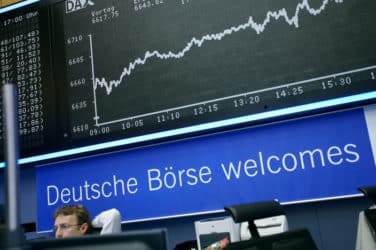
The financial transaction tax in Italy and France has increased the implicit cost of trading and led to investors trading less according to research from Credit Suisse.
Italy introduced a financial transactions tax a year ago which includes contracts for difference used for hedging.
Credit Suisse trading strategy analysts said in a report that since the tax came into force average daily trading in Italian stocks fell 29.7% versus the average between January and February 2013. Average daily trading in other European stocks increased by 4.5% over the same period.
The report said: “Italy has experienced a 34.2% relative decline in ADT since the introduction of the tax.”
In Italy the tax is 20 basis points for over-the-counter transactions, double the rate of on-exchange deals. Credit Suisse found that its introduction was followed by a €28.1bn reduction in OTC volume being reported to data providers as some broker dark pools became economically unviable.
The bank analyzed trades from December 2012 to end of May 2013 and compared similiar algorithmic trades before the tax when Credit Suisse Crossfinder, its dark pool, was switched on for all European stocks. The sample was compared against those after the tax when Crossfinder was switched off for Italian stocks.
“On average, trades in Italian stocks which took place after the Italian FTT was implemented underperformed on a relative basis versus Implementation Shortfall (IS) and interval VWAP,” added Credit Suisse. “As the data is controlled so that exposure to the dark is the only meaningful difference between the two samples, there is evidence to suggest that the IFTT may have raised the implicit cost of trading Italian stocks.”
The bank argued that the increase in implicit costs has led to investors trading less, rather than shifting volumes to Borsa Italiana. The average monthly turnover at the Italian exchange grew by 4.9% after the tax but average monthly turnover at MTFs grew 24.4%. These combined increases were not enough to offset the drop in OTC trading.
The report said: “The argument that discouraging OTC trading will result in a significant shift towards more on-exchange trading does not appear to hold.”
The French FTT excludes contracts for difference for hedging and had a smaller impact on volume in French large caps. Credit Suisse said that in the 20 months since the tax was introduced in France, average daily turnover in French stocks fell by 9.2%. The report said: “Over the same time period, ADT in other European stocks fell by 2.8%; therefore, France has experienced a 6.4% relative decline in ADT since the introduction of the tax.”
It is possible that the meeting of EU Finance Ministers on May 6 could announce a deal to introduce FTT across 11 member states ahead of the European Parliament elections between the May 22 and 25.
KPMG said on its FTT blog that the EU Taxation Commissioner, Algirdas Semeta, stated in an interview last month that he was “cautiously optimistic” a revised proposal would be issued before May’s European elections.
KPMG said: “However, to most observers autumn seems a more realistic timeframe. It looks as if an EU FTT in some form retains strong political backing in key member states.”
The blog said while there may be changes to the existing draft directive, some derivatives are likely to be included and and tax would be phased in over two stages.
“There has been no indication of whether the controversial counterparty principle (involving charging entities not in the FTT zone where they transact with counterparties which are) will be removed,” KPMG added. “However, from a European Commission update to its FTT webpage this month it appears the Commission is seeking to defend this from legal challenge.”
Featured image via iStock



